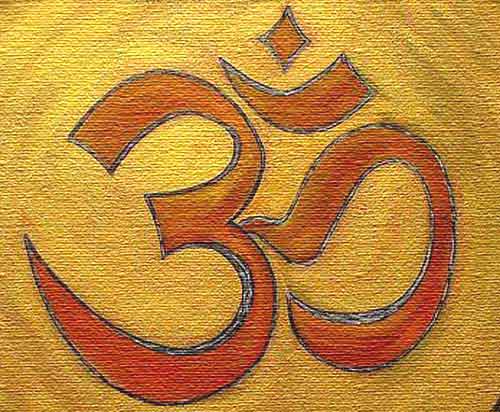This is a collection of ancient Hindu wisdom from folklores, scriptures and stories. The Hindu Quotes are primarily gathered from old books.
You should be capable of making use of even the dust, while at the same time you should also be ready to reject the entire cosmos as mere dust! (Sri Ramana Maharshi)
......
He who is overcautious accomplishes little.
One king word warms three winter months.
Be charitable according to your means.
A word is a medicine enough for the wise.
Offering without faith is a waste of flowers.
From labor comes fruit.
One gets to meet experts in the fields of policy, astrology, scriptures and Vedas. Even the knowers of Brahman can be found. But rare indeed is to be found a person aware of his ignorance!
Humility and courtesy are acts of piety.
Anger destroy every virtuous principle.
Heaven lies at the feet of mothers.
Pleasant words are sweet to the soul, and health to the bones.
Without goals we cannot grow.
Good company leads to non-attachment.
Strife is a loss, friendship a gain.
Know that, everyday, the sun rises and sets and takes away along with him daily a portion of your life and therefore do good actions all the time.
All your earnings end up in your house. Kith and kin are only up to the cemetery. The unseen results of your deeds, both good and bad, alone will accompany you after death.
All your earnings end up in your house. Kith and kin are only up to the cemetery. The unseen results of your deeds, both good and bad, alone will accompany you after death.
When two pieces of dry twigs are rubbed, fire is ignited,
If earth is dug, it gives out water,
If there is enthusiasm nothing is impossible,
If you start towards the right direction and keep working, you will reach the goal.
If earth is dug, it gives out water,
If there is enthusiasm nothing is impossible,
If you start towards the right direction and keep working, you will reach the goal.
When the great ocean was churned (samudra manthan) by gods, it gave rise to many things. Along with numerous attractive objects, dreadful poison also came out. Poison could not frighten gods nor could precious gems tempt them from their efforts. They continued to churn the ocean till the nectar (amrita) came out.
---
When people reach the highest perfection, it is nothing special, it is their normal condition…
Evil is a screen which hides the truth.
The acts of this life are the destiny of the next.
The world is imprisoned by its own activity.
The name of God is Truth.
He alone grasps God who does not grasp Him. Anyone who understands God does not know Him.
The flies seek filth, the bees seek honey. I will shun the habit of the flies and follow that of the bees. I will refrain from finding faults in others and only look for the good which is in them…
He who has come through the fire will not fade in the sun.
Cleverness is required even for the practice of vice.
Help thy brother’s boat across and lo! thine own has reached the shore.
Just as he behaves, so he becomes.
Never do to others what would pain yourself.
Man is created by thought; what he thinks upon, that he becomes.
The face is covered by wrinkles, the head is marked with white hair, and the limbs have slackened but desire alone is still young.
The houseflies long for wounds; the kings crave for wealth; evil people look out for quarrels and the good people try to unite people.
Of all the eighteen Mahapuranas of Vyasa, only two lessons forms the essence: to do good to others is punya (merit) and to trouble others is papa (demerit or sin).
It is easy for people to show off knowledge by advising others. But it is hard to get a great man who practices what he preaches.
Rainfall in the sea is useless; Food given to one who has had his fill is a waste. Giving a gift to the rich is futile and a lamp serves no purpose in the day.
Rainfall in the sea is useless; Food given to one who has had his fill is a waste. Giving a gift to the rich is futile and a lamp serves no purpose in the day.
The parrot and cuckoo bird are caged due to fault of their mouth (voice). The cranes however are not caged, silence achieves all purpose.
Gesticulate your food like goat; bathe as an elephant bathes; when speaking use sweet words like the birds and meditate like a heron (intent on catching a fish).
After his death, man’s wealth is enjoyed by others; age and fire destroy the elements of the body; demerits (papa) and merits (punya) alone accompany him to the next world.
Religion to us (Hindus) is not any formal cult or dogmatic creed. The heart is the birthplace of religious life and God and man meet naturally there. The heart’s hunger for God is ‘bhakti.’ It is essentially inward, a life of earnestness and sincerity. The ‘bhakta’ is happy because of his communion with or centering himself in God.
T V Viswanatha Iyer
(Source : Bhavan’s Journal, Annual Number: Vol XVIII No.1;Aug 8 1971, page.207)
